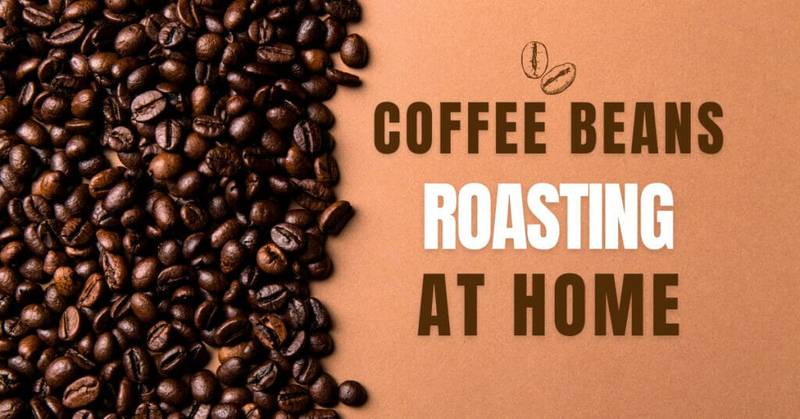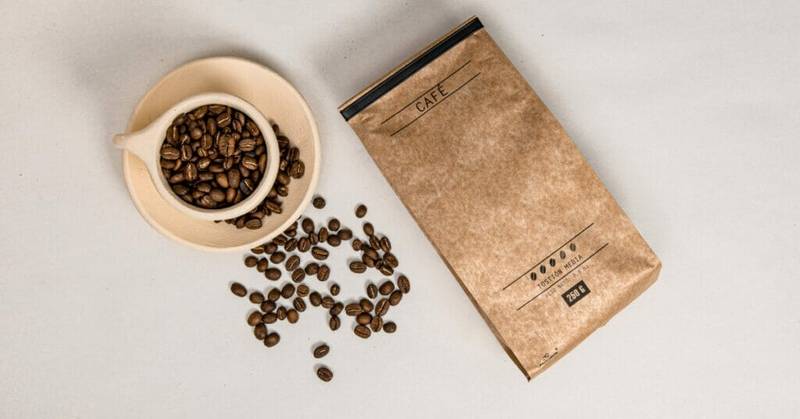You might have seen your dog investigating your coffee and wondered, “Can coffee beans hurt dogs?” The truth is—they absolutely can.
Coffee might be our daily fuel, especially when we choose the best coffee beans, but for dogs, even a single bean can cause trouble. From restlessness and hyperactivity to more serious heart issues, caffeine just doesn’t sit well with their system. It’s one of those things we don’t think about—until it’s too late.
Table of Contents
Can Coffee Beans Hurt Dogs? || 7 Types of Coffee That Can Harm Pets
As responsible pet owners, we wonder, “Can coffee beans hurt dogs?”
Coffee, a beloved beverage among humans worldwide, has a rich history and diverse forms. It’s a source of energy and comfort for many, but coffee and its various iterations can spell trouble for our canine companions.
In this comprehensive guide, we’ll delve into the intriguing world of coffee and elucidate why it can be hazardous for dogs.
We’ll explore different types of coffee, from the raw and unroasted beans to the enticing allure of hot coffee, espresso, ristretto shots, iced coffee, and even the seemingly innocuous decaf variety.
All these forms of coffee can pose a significant danger to dogs. It’s essential to understand the potential risks associated with coffee consumption by dogs and what actions to take if you suspect your dog has encountered these caffeinated delights.
So, let’s embark on this journey to safeguard the well-being of our four-legged companions and answer pressing questions like, “My dog ate coffee beans—what should I do?” and “Can dogs eat coffee beans without harm?”
Based on information from the National Library of Medicine, dogs can experience poisoning that can lead to death due to caffeine ingestion.
Here are seven steps to ensure the safety and well-being of your pets by staying vigilant about potential hazards.
1. Unroasted coffee beans:
Unroasted coffee beans, also known as green coffee beans, are raw coffee beans. They contain a higher concentration of caffeine than roasted beans. These unroasted beans can cause caffeine toxicity in dogs when ingested.
2. Hot coffee:
Hot coffee, especially if it’s sweetened, can harm dogs. If dogs consume hot coffee, the caffeine can result in various symptoms like restlessness, rapid breathing, and even seizures.
3. Espresso:
Espresso is a highly concentrated coffee beverage. Even a small amount of espresso can be dangerous for dogs due to its intense caffeine content. It can lead to caffeine poisoning, which can be life-threatening.
4. Ristretto Shots:
Ristretto shots are even more concentrated than regular espresso. These tiny shots pack a powerful caffeine punch and should be kept far away from dogs to avoid potential health risks.
5. Iced Coffee:
Iced coffee, though cold, still contains caffeine, which harms dogs. The cold temperature might mask the taste, making it more tempting for a curious dog to drink, but it should be avoided altogether.
6. Used Ground Coffee:
Used ground coffee, after brewing, may still contain traces of caffeine. Dogs can sometimes get into the trash or compost where used coffee grounds are disposed of, so it’s important to store them to prevent access by pets.
7. Decaf Coffee:
Decaffeinated coffee is not entirely caffeine-free. It contains a small amount of caffeine, which can still pose a risk to dogs, especially if consumed in larger quantities.
How Much Caffeine is Toxic for Dogs?

The amount of toxic caffeine for dogs can vary based on size, weight, and sensitivity. Generally, even a small amount of caffeine can be harmful to dogs.
It’s estimated that ingesting around 9 milligrams of caffeine per pound of body weight can start causing symptoms of caffeine poisoning in dogs.
According to information for American College Veterity pharmacists.
This chart provides valuable insights into safe levels of caffeine intake for dogs of various sizes.”
Given the potential risks, avoiding exposing your dog to caffeine is best.
Remember that caffeine is found in coffee beans and products like chocolate, tea, energy drinks, and some medications.
If you believe your dog has consumed anything containing caffeine, it’s advisable to seek veterinary assistance promptly.
What are the Signs of Toxicity in Dogs?
Here are signs that your dog might have ingested something harmful:
| 1. Restlessness | 2. Shaking or trembling |
| 3. Muscle spasms | 4. Throwing up |
| 5. Seizures | 6. Irregular heart rate |
| 7. Kidney issues | 8. Unexplained bleeding or bruising |
| 9. Nosebleeds | 10. Difficulty walking |
| 11. Abnormal heartbeat | 12. Excessive saliva |
| 13. Irritated mouth | 14. Pale gums |
Can One Coffee Bean Kill a Dog?

Coffee beans are dangerous to dogs due to caffeine, which contains methylxanthine.
This substance can lead to toxicosis if ingested by pets.
When dogs ingest coffee grounds, methylxanthine enters their bloodstream, potentially leading to a loss of muscle control.
While susceptibility varies based on size and age, any dog can be affected, regardless of age or breed.
Some breeds might be more prone to risks than others.
Elderly dogs or those with existing health conditions face an elevated risk of toxicity from coffee beans.
Even small quantities of caffeine can be lethal for smaller breeds, whereas larger dogs might not experience the same impact.
For instance, tiny breeds like Yorkies and Chihuahuas could face fatality with as little as 0.1 ounces of coffee beans.
On the other hand, larger breeds like Retrievers and German Shepherds would need to ingest 7.5 ounces or more of coffee beans for it to be fatal.
How to Proceed If Your Dog Consumes Coffee Beans?

Coffee beans hurt dogs. If your dog has consumed coffee beans, here’s what you should do:
Stay Calm:
Although feeling panicked is natural, staying calm is essential for an effective response.
Check for Other Caffeine Sources
Ensure your dog hasn’t ingested any other caffeine-containing items.
Record Details:
Take note of everything your dog has eaten, including ingredient lists if available.
Contact Your Vet:
Call your veterinary clinic without delay. Please provide them with comprehensive information, such as your dog’s weight, size, age, and symptoms.
Follow your Vet’s Advice:
Follow your vet’s instructions, as they are professionals in this field.
Depending on the severity of the situation, they might advise you to take your pet to the clinic right away or suggest appropriate treatments to administer at home.
How to Prevent your Dog from Eating Coffee Beans?

Preventing your dog from eating coffee beans requires vigilance and proactive measures to keep these harmful substances out of their reach because coffee beans hurt dogs. Here’s how to do it:
Secure Storage:
Store coffee beans and related products in sealed containers or cabinets your dog cannot access.
Elevate Trash Bins:
Keep trash cans with discarded coffee grounds or pods out of your dog’s reach by placing them in elevated or latched areas.
Monitor Countertops:
Avoid leaving coffee-related items on countertops or tables where your dog could easily reach them.
Educate Family Members:
Ensure that all members of your household are informed about the dangers of caffeine for pets and are cautious not to share any coffee-related items with the dog.
Pet-Friendly Treats:
Offer appropriate pet treats to satisfy your dog’s cravings and reduce their interest in seeking out potentially harmful substances.
Training:
Teach your dog commands like “leave it” or “drop it,” which are crucial for preventing them from consuming harmful substances.
Regular Cleaning:
Promptly clean up any spills or crumbs from coffee-related products to eliminate temptations.
Supervision:
When enjoying coffee or handling coffee beans, ensure your dog is safely away to prevent accidental ingestion.
Alternative
Play and Stimulation: Provide toys, playtime, and mental stimulation to keep your dog engaged and less likely to explore forbidden items.
Consult Your Vet:
If you suspect your dog will get into things, consult your veterinarian for further advice on managing their behaviour.
These preventive measures can significantly reduce your dog’s risk of consuming coffee beans and protect their health and well-being.
What are The Foods That Contain Caffeine?

Several foods and beverages contain caffeine, which can be harmful to pets. Here are some common ones:
Coffee:
This is an obvious source of caffeine, and all its forms, like brewed coffee, instant coffee, pour-over, french press, and espresso.
Tea:
Black tea, green tea, and other caffeinated tea varieties.
Energy Drinks:
Numerous energy drinks are loaded with substantial amounts of caffeine.
Sodas:
Colas and other carbonated beverages often have caffeine.
Chocolate:
Chocolate products, especially dark chocolate, contain caffeine and theobromine, which is toxic to pets.
Caffeinated Snacks:
Certain snacks and foods, like chocolate-covered espresso beans, can be dangerous.
Medications:
Some medications, especially pain relievers and weight loss pills, might contain caffeine.
Ice Cream and Yogurt:
Flavored varieties might have added caffeine.
Caffeinated Alcoholic Beverages:
Alcoholic beverages mixed with caffeine, like some cocktails or premixed drinks.
Caffeine-Containing Supplements:
Some dietary supplements or weight loss products contain caffeine.
It’s important to be cautious and read labels when offering any food to your pets, as some ingredients might not be immediately obvious.
Always consult your veterinarian if you’re uncertain whether a particular food is safe for your pet.
To learn more about coffee beans and their growth at home, you can explore our article on Coffee Beans Growing at Home.
FAQs || Can Coffee Beans Hurt Dogs
How much caffeine is in a coffee bean?
Each coffee bean contains roughly 6 milligrams of caffeine, although the precise amount varies based on the coffee variety. For instance, Arabica coffee contains approximately 12 milligrams of caffeine per gram, whereas Robusta coffee carries a higher content of around 22 milligrams per gram.
How long does caffeine stay in a dog’s system?
The process of caffeine passing through the animal’s system usually lasts between 24 to 48 hours. With timely treatment, most pets have a good chance of recovery and survival.
Does coffee smell good to dogs?
The mystery surrounding dogs’ aversion to coffee grounds is similar to the lamb phobia. Many people have observed that their dogs and cats just don’t like the smell of coffee grounds.
Can dogs drink coffee with milk?
Coffee is a no-go for dogs; pet owners should never share it with their furry pals. A cup of coffee has a lot of caffeine, leading to issues like high blood pressure and a speedy heart rate in your pet. Even decaffeinated coffee isn’t safe due to the tiny amounts of caffeine it might have.
Final Thought
In short, coffee beans hurt dogs due to the caffeine they contain.
Even a coffee bean can cause problems, as dogs are susceptible to caffeine. It’s crucial to understand the potential dangers within our homes, especially when items like a Jar of Coffee are easily accessible.
“Can Coffee Beans Hurt Dogs” reminds us of potential risks in everyday items for our pets.
We can keep our pets safe and happy by staying informed, taking precautions, and getting quick vet help.








Your article helped me a lot, is there any more related content? Thanks!
Your point of view caught my eye and was very interesting. Thanks. I have a question for you.